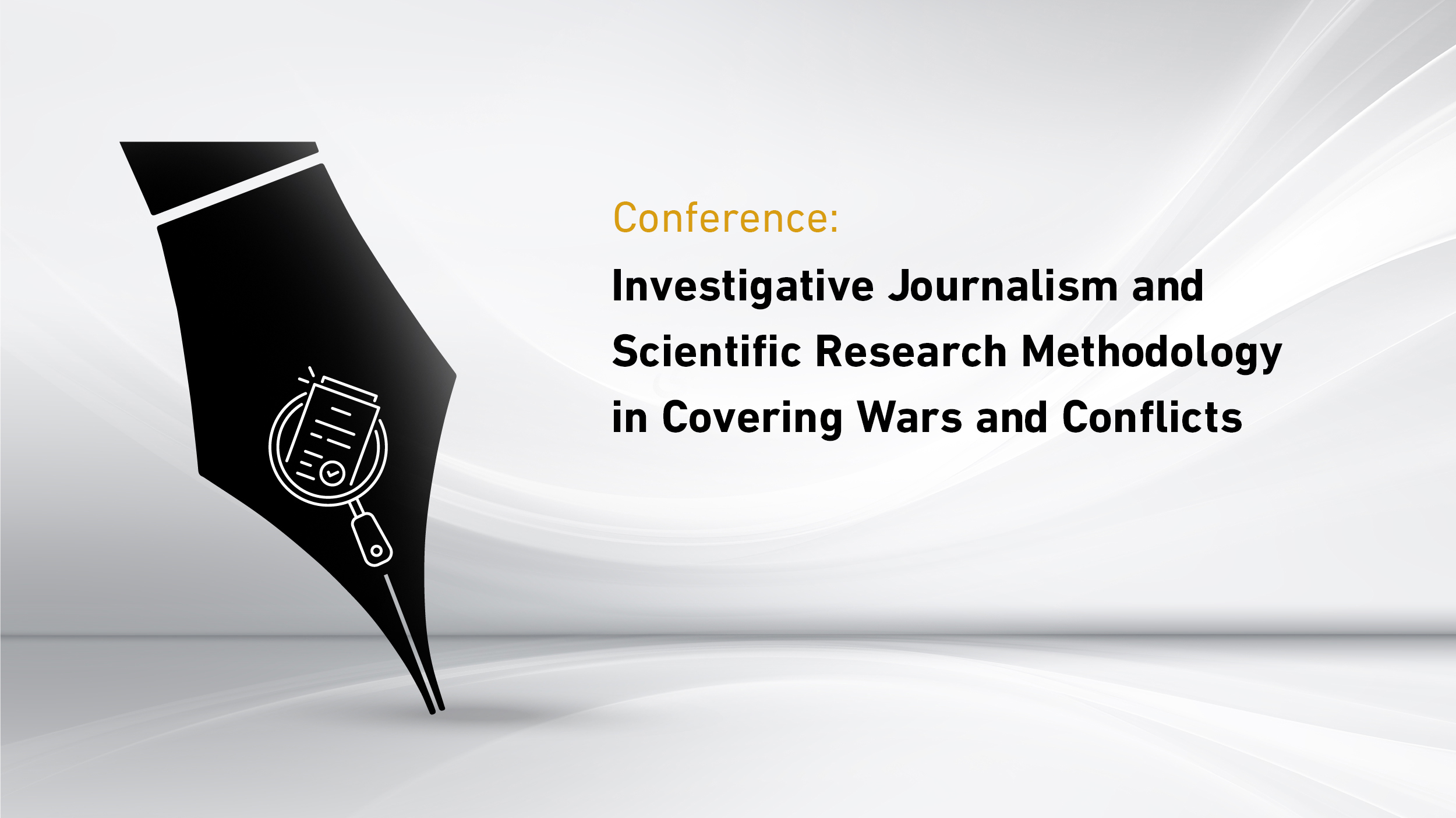
Al Jazeera Centre for Studies is organising an international conference with the Laboratory of Literary and Linguistic Studies and Media and Communication Sciences and the Department of Media and Communication at Sidi Mohamed Ben Abdellah University in Fez, entitled, “Investigative Journalism and Scientific Research Methodology in Covering Wars and Conflicts”.
The importance of investigative journalism and the scientific methodological tools it requires is growing within the global media landscape, marked by the clash of narratives competing to shape international public opinion, the spread of fake news and media manipulation, and the diverse forms of propaganda aimed at supporting conflicting parties and vested interests. Given the pivotal role of this methodological approach as a framework for producing rigorous investigative journalism, the conference aims to pinpoint the challenges confronting media outlets in upholding professional standards in fact-finding, particularly amidst the competing agendas of international players and the conflicting interests of media institutions. Moreover, it seeks to delve into the ethics of investigative journalism, explore the journalistic methodology grounded in scientific research principles, showcase notable Arab and international experiences in investigative journalism, and underscore the vital role of modern technologies in advancing investigative reporting.
In this context, Al Jazeera Centre for Studies is hosting an international conference in conjunction with the Laboratory of Literary and Linguistic Studies and Media and Communication Sciences and the Department of Media and Communication at Sidi Mohamed Ben Abdellah University titled, “Investigative Journalism and Scientific Research Methodology in Covering Wars and Conflicts”. The conference aims to examine the role of scientific research methodology in investigative journalism for tackling wars and conflicts, and its significance in uncovering truths that enable journalism to bear witness to the trajectories and contexts of events, thereby documenting the evolution of conflicts to safeguard individuals' rights to accurate knowledge. The conference will take place on 4 and 5 December 2024 at Sidi Mohamed Ben Abdellah University in Fez, Morocco.
Conference themes
- Research methodologies and their role in enhancing the foundations of investigative journalism
- Utilising the scientific method in the practical steps of preparing investigative journalism
- The methodologies of investigative reporting and their influence on the quality of investigative journalism work
- Requirements for depth in investigative journalism work
- Ethical standards and professional guidelines in investigative journalism
- The challenges of investigative journalism in times of war and conflict
- Journalistic investigation of war crimes and genocide
- The clash between conflicting narratives striving to dominate local and global public opinion
- War crimes against journalists: Manifestations and backgrounds
- Legal protection for journalists during wars and conflicts
- The landscape of investigative journalism and its contribution to advancing human rights and justice
- The legal, institutional and political environment for bolstering investigative journalism
- Investigative journalism and its relationship with the democratic context (in terms of its evolution and impact)
- The supervisory role of investigative journalism and uncovering human rights violations
- How does investigative journalism contribute to achieving justice?
- The academic standing of investigative journalism and its future in the Arab world
- The status of academic programmes for investigative journalism in the Arab world
- Challenges in training journalists qualified for investigative journalism work
- Methods of developing investigative journalism in academic programmes at Arab universities
- The future of investigative journalism in the Arab world
- Investigative journalism and shaping public opinion
- The impact of investigative journalism on shaping public opinion
- The cognitive authority of investigative journalism and its impact on the public sphere and democratic practice
- The responsibility of investigative journalism in bringing about change
- Investigative journalism and modern technologies
- The uses of artificial intelligence in investigative journalism
- Social media networks and open sources for the enrichment of investigative journalism
- Methods of verifying fake news and misleading information in investigative journalism
- The role of digital journalism in advancing investigative journalism
Submission requirements
- Researchers are required to submit a research proposal within the conference themes no longer than 500 words. The proposal should encompass the research topic, its problem statement, objectives, significance, methodology and structure. The proposal should also be accompanied by the researcher's CV.
- The research must be original, specifically prepared for the conference, and not derived from a thesis, partially or fully published in any paper or electronic publication, presented at a conference, or submitted for publication in any journal.
- The scientific committee will inform the researchers of accepted proposals to proceed with preparing their research papers. Participation in the conference will be granted only to authors whose papers have been approved by the review committee.
- Conference languages: Arabic.
Important dates
- Deadline for submitting abstracts and research proposals: 20 August 2024
- Notification of acceptance: 5 September 2024
- Deadline for submitting final drafts (with a word length of 6000-8000 words including references and footnotes): 25 October 2024
- Final response on accepted papers: 5 November 2024
- Conference dates: 4-5 December 2024
*Participation proposals and all conference-related correspondence should be sent to the following email address: mediaconference@aljazeera.net